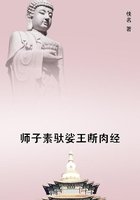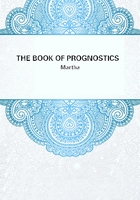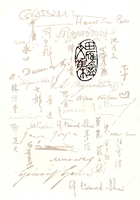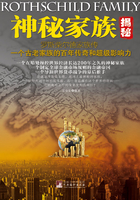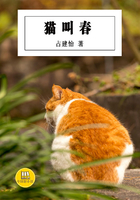On rock that is much softer than that on the other side of the oolite hills: much softer, because it is much newer. We have got off the oolites on to what is called the Oxford clay; and then, I believe, on to the Coral rag, and on that again lies what we are coming to now. Do you see the red sand in that field?
Then that is the lowest layer of a fresh world, so to speak; a world still younger than the oolites--the chalk world.
But that is not chalk, or anything like it.
No, that is what is called Greensand.
But it is not green, it is red.
I know: but years ago it got the name from one green vein in it, in which the "Coprolites," as you learnt to call them at Cambridge, are found; and that, and a little layer of blue clay, called gault, between the upper Greensand and lower Greensand, runs along everywhere at the foot of the chalk hills.
I see the hills now. Are they chalk?
Yes, chalk they are: so we may begin to feel near home now. See how they range away to the south toward Devizes, and Westbury, and Warminster, a goodly land and large. At their feet, everywhere, run the rich pastures on which the Wiltshire cheese is made; and here and there, as at Westbury, there is good iron-ore in the greensand, which is being smelted now, as it used to be in the Weald of Surrey and Kent ages since. I must tell you about that some other time.
But are there Coprolites here?
I believe there are: I know there are some at Swindon; and I do not see why they should not be found, here and there, all the way along the foot of the downs, from here to Cambridge.
But do these downs go to Cambridge?
Of course they do. We are now in the great valley which runs right across England from south-west to north-east, from Axminster in Devonshire to Hunstanton in Norfolk, with the chalk always on your right hand, and the oolite hills on your left, till it ends by sinking into the sea, among the fens of Lincolnshire and Norfolk.
But what made that great valley?
I am not learned enough to tell. Only this I think we can say--that once on a time these chalk downs on our right reached high over our heads here, and far to the north; and that Madam How pared them away, whether by icebergs, or by sea-waves, or merely by rain, I cannot tell.
Well, those downs do look very like sea-cliffs.
So they do, very like an old shore-line. Be that as it may, after the chalk was eaten away, Madam How began digging into the soils below the chalk, on which we are now; and because they were mostly soft clays, she cut them out very easily, till she came down, or nearly down, to the harder freestone rocks which run along on our left hand, miles away; and so she scooped out this great vale, which we call here the Vale of White Horse; and further on, the Vale of Aylesbury; and then the Bedford Level; and then the dear ugly old Fens.
Is this the Vale of White Horse? Oh, I know about it; I have read The Scouring of the White Horse.
Of course you have; and when you are older you will read a jollier book still,--Tom Brown's School Days--and when we have passed Swindon, we shall see some of the very places described in it, close on our right.
* * *
There is the White Horse Hill.
The White Horse Hill? But where is the horse? I can see a bit of him: but he does not look like a horse from here, or indeed from any other place; he is a very old horse indeed, and a thousand years of wind and rain have spoilt his anatomy a good deal on the top of that wild down.
And is that really where Alfred fought the Danes?
As certainly, boy, I believe, as that Waterloo is where the Duke fought Napoleon. Yes: you may well stare at it with all your eyes, the noble down. It is one of the most sacred spots on English soil.
Ah, it is gone now. The train runs so fast.
So it does; too fast to let you look long at one thing: but in return, it lets you see so many more things in a given time than the slow old coaches and posters did.--Well? what is it?
I wanted to ask you a question, but you won't listen to me.
Won't I? I suppose I was dreaming with my eyes open. You see, I have been so often along this line--and through this country, too, long before the line was made--that I cannot pass it without its seeming full of memories--perhaps of ghosts.
Of real ghosts?
As real ghosts, I suspect, as any one on earth ever saw; faces and scenes which have printed themselves so deeply on one's brain, that when one passes the same place, long years after, they start up again, out of fields and roadsides, as if they were alive once more, and need sound sense to send them back again into their place as things which are past for ever, for good and ill. But what did you want to know?
Why, I am so tired of looking out of the window. It is all the same: fields and hedges, hedges and fields; and I want to talk.
Fields and hedges, hedges and fields? Peace and plenty, plenty and peace. However, it may seem dull, now that the grass is cut; but you would not have said so two months ago, when the fields were all golden-green with buttercups, and the whitethorn hedges like crested waves of snow. I should like to take a foreigner down the Vale of Berkshire in the end of May, and ask him what he thought of old England. But what shall we talk about?
I want to know about Coprolites, if they dig them here, as they do at Cambridge.
I don't think they do. But I suspect they will some day.
But why do people dig them?
Because they are rational men, and want manure for their fields.
But what are Coprolites?
Well, they were called Coprolites at first because some folk fancied they were the leavings of fossil animals, such as you may really find in the lias at Lynn in Dorsetshire. But they are not that; and all we can say is, that a long time ago, before the chalk began to be made, there was a shallow sea in England, the shore of which was so covered with dead animals, that the bone- earth (the phosphate of lime) out of them crusted itself round every bone, and shell, and dead sea-beast on the shore, and got covered up with fresh sand, and buried for ages as a mine of wealth.
But how many millions of dead creatures, there must have been!
What killed them?

